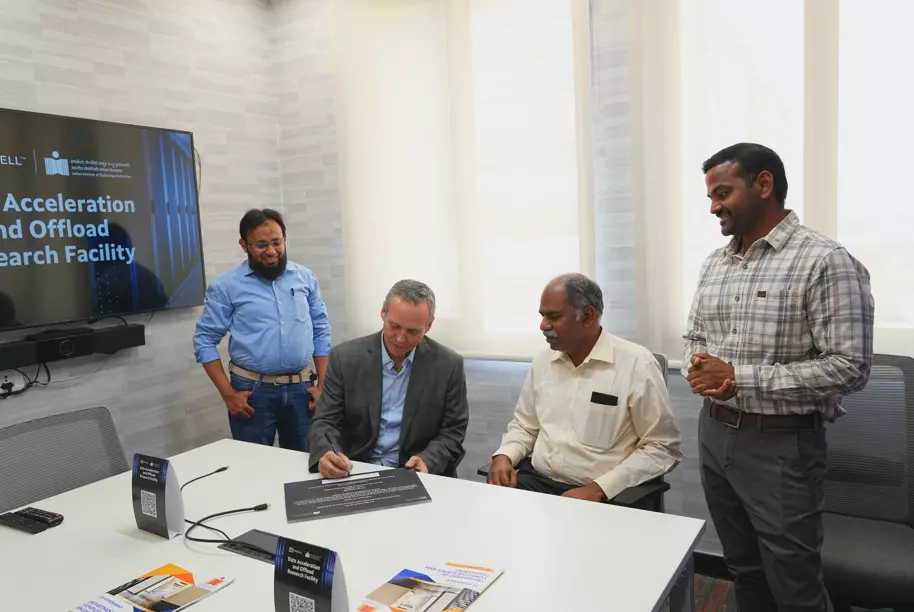IITH launches data offload research unit
To tackle data transfer delays, a big deficiency in AI, ML processing

Hyderabad: The Indian Institute of Technology Hyderabad (IITH) launched the world’s first data acceleration and offload research facility to tackle data transfer delays — a major inefficiency in artificial intelligence (AI) and machine learning (ML) processing.
AI and ML systems require vast amounts of data, but a significant portion of processing time is lost as these systems wait for data to move across networks. Research suggests that up to one-third of AI processing time is wasted due to these delays. The new facility at IITH aims to address this by improving the speed, security, and efficiency of data movement, a critical factor in AI-driven applications.
The centre, set up in collaboration with Marvell Technology, will provide researchers, students, and industry professionals with access to advanced semiconductor technologies, including data processor units (DPUs), network interface controllers (NICs), compute express link (CXL) processors, and high-performance switches. These technologies manage how data moves between servers, processors, and storage devices, playing a crucial role in AI, cloud computing, and cybersecurity, the university said in a statement.
IIT Hyderabad said this initiative is a step towards making India a key player in AI and semiconductor research. “This partnership strengthens IIT Hyderabad’s position in accelerated computing and will help shape the next generation of AI and semiconductor experts,” said Prof. B.S. Murty, IIT-H Director.
Apart from research, the facility will host training programmes, workshops, and specialised courses to build expertise in AI infrastructure. It follows IITH’s previous collaborations in AI and network security, including the MLNetSec Workshop at the International Conference on Distributed Computing and Networking (ICDCN).
With AI applications expanding rapidly, improving data processing speed is becoming essential. This facility is expected to drive advancements in AI, networking, and cybersecurity while addressing the skill gap in these emerging fields.

